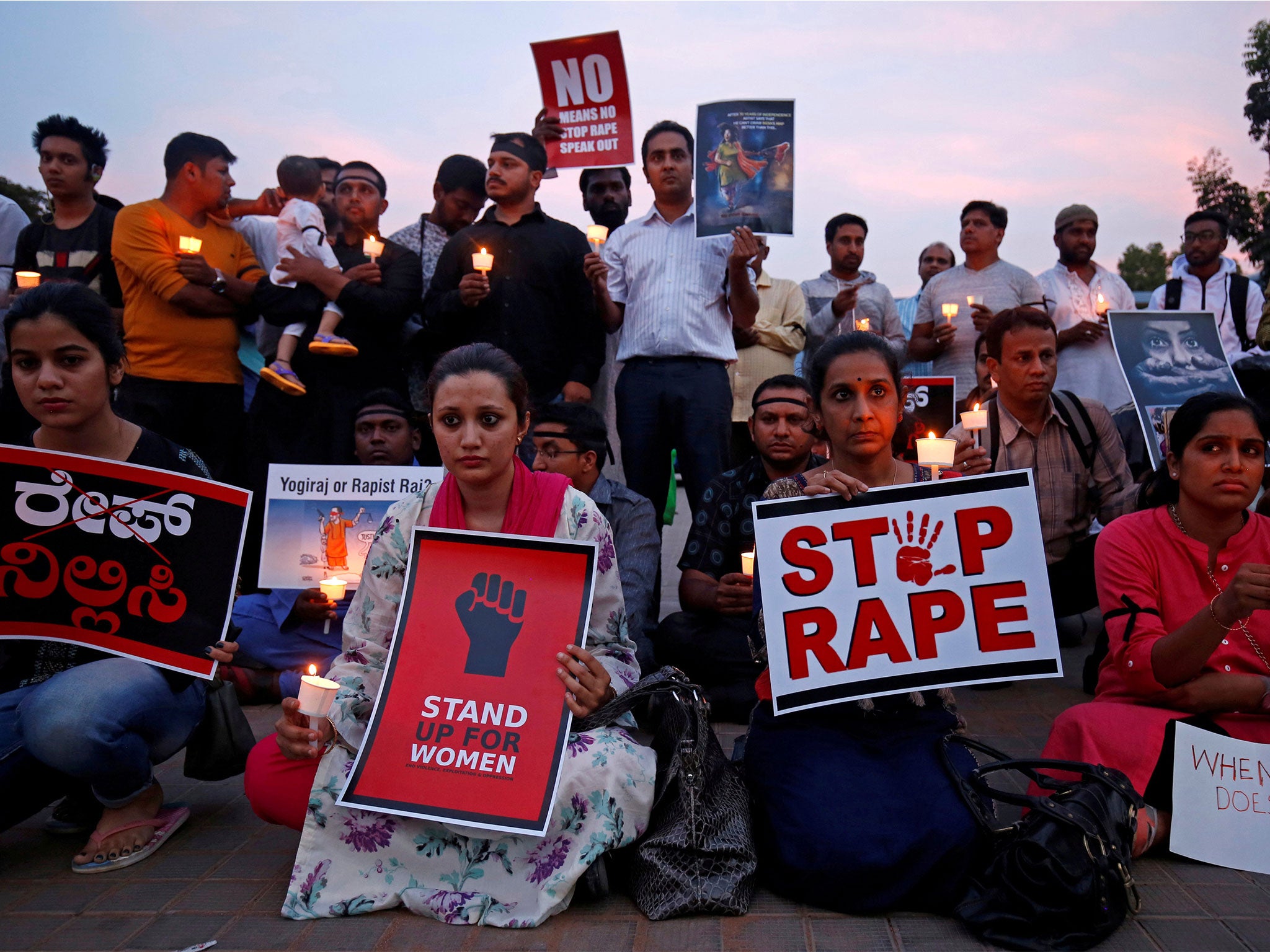Woman making rape claim dies after setting herself on fire in India police station over alleged police inaction
'For the past two months, the investigation has not moved even an inch. Instead, police targeted my wife and hounded her as though she was an accused,' says woman’s husband

Your support helps us to tell the story
From reproductive rights to climate change to Big Tech, The Independent is on the ground when the story is developing. Whether it's investigating the financials of Elon Musk's pro-Trump PAC or producing our latest documentary, 'The A Word', which shines a light on the American women fighting for reproductive rights, we know how important it is to parse out the facts from the messaging.
At such a critical moment in US history, we need reporters on the ground. Your donation allows us to keep sending journalists to speak to both sides of the story.
The Independent is trusted by Americans across the entire political spectrum. And unlike many other quality news outlets, we choose not to lock Americans out of our reporting and analysis with paywalls. We believe quality journalism should be available to everyone, paid for by those who can afford it.
Your support makes all the difference.A woman who made a rape claim has died after setting herself on fire in a police station in India in protest over alleged police inaction.
The 35-year-old called for the arrest of her husband’s relative for allegedly raping her before dying from injuries.
She went to Vaishali Nagar police station in Jaipur in northern India on 5 June to allege Ravindra Singh raped her in 2015, but the accused was not arrested.
The woman then went to the police station on Sunday with her son and set herself on fire near its main gate. She was admitted to hospital with nearly 60 per cent burns.
Police said she "died in the morning during treatment".
“For the past two months, the investigation has not moved even an inch,” the woman’s husband told the Times of India.
“Instead, police targeted my wife and hounded her as though she was an accused. One Assistant Commissioner of Police had been forcing her to withdraw the case. Fed up, she set herself on fire on Sunday.”
A police officer said the case was still at investigation stage when pressed about its current status and the family’s allegation of inaction by the police.
“We had quickly registered the First Information Report [a written document prepared by police in India] against the accused, who happens to be her relative. But some new facts emerged during the investigation, which needed to be corroborated,” an officer, who chose to remain anonymous, said.
Assistant Deputy Commissioner of Police Rai Singh Beniwal said the rape case was being investigated but there was “no adequate evidence” to arrest the accused.
Rape is one of the most under-reported crimes in India – with some estimates indicating 90 to 95 per cent of rape cases remain unreported.
According to government data, the number of crimes against women reported to police in India rose by 83 per cent from 2007 to 2016. Four rape complaints were reported every hour in 2016, the data showed.
The conviction rate for crimes against women in India is very low – only 18.9 per cent and the lowest in a decade – according to the latest official crime statistics from 2016. The average conviction rate for all crimes is 47 per cent.
Thousands of women walked 10,000 kilometres (6,200 miles) across India – covering 200 districts in 24 states – to raise awareness about the prevalence of rape earlier in the year.
The Dignity March, which started in Mumbai in December and ended in Delhi in February, drew sexual assault survivors from across the subcontinent.
The historic march shined a spotlight on a culture of victim shaming and blaming, which campaigners say allows perpetrators to evade punishment, and also aimed to highlight the obstacles women and children face in accessing justice.
Join our commenting forum
Join thought-provoking conversations, follow other Independent readers and see their replies
Comments